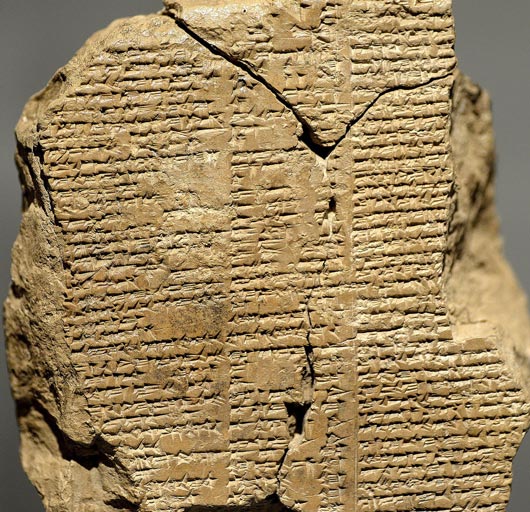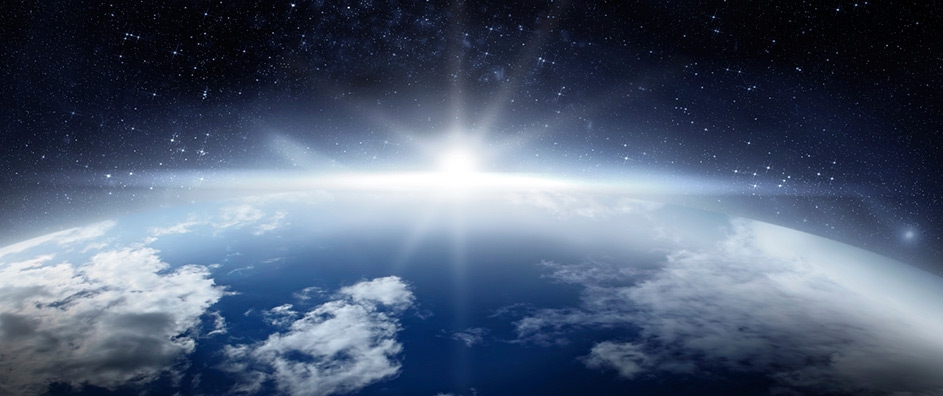The views expressed in our content reflect individual perspectives and do not represent the authoritative views of the Baha'i Faith.
OK, here’s a simple question: do you believe the human race is heading towards its extinction, sometime in the next hundred years or so?
In a recent poll taken in the United States, Canada, Australia and the United Kingdom, a quarter of the respondents said they believed the human species would become extinct sometime in the next century. Americans seemed more pessimistic than any others, with almost a third of the populace believing in near-term human extinction.
In every country, younger respondents tended toward apocalyptic pessimism much more than older ones. To top that off, the survey found that a majority of people in those Western countries—54%–believe that our “way of life” will likely end during the next hundred years.
Sadly, this pessimistic view of civilization’s impending doom does have some evidence to back it up. Beyond the nuclear armaments that increasingly proliferate in the world, growing scientific consensus about climate change, species extinction and human overpopulation have led many to conclude that humanity now faces some sort of impending apocalyptic mega-disaster. In a recent Reuters poll conducted across 21 of the world’s countries, for example, one in seven people said they believe the end of the world is coming. The French seemed most optimistic, with only 6% fearing the end of the world; while Turkey and the United States seemed most fearful, at 22%.
This widespread cultural pessimism—which has grown recently, and spread to many different cultures—fits conveniently into the doom-and-gloom predictions of some religious fundamentalists, who believe that the “end times” have arrived, and that we’ll all soon be swept up in a world-devouring cataclysm that will separate the sinners and the saved.

Ancient tablet of the epic Gilgamesh which dates back between 2003-1595 BCE
If you read the scriptures of various worldwide Faiths, you’ll find these kinds of apocalyptic stories in many places. Noah’s flood and his escape on the Ark and the similar flood story of Nuh in the Qur’an both closely replicate and reprise a world-ending deluge recounted in the ancient Hindu Dharmasastra, where King Manu built a huge ark to repopulate the Earth after the flood. Buddhist and Jain scriptures also contain this same basic story; as do Babylonian and Judaic accounts. The great Epic of Gilgamesh tells a similar tale, where God saves the hero and his family from a world-drowning flood.
Probably the most familiar apocalyptic story in Western civilization comes from the last chapter of the Bible, the Book of Revelation—which features many prophecies of destruction; but also recounts promises of a future society where peace and harmony reign. The title of that book comes from its first word, apokalypsis, which means revelation in Koine Greek, and which gave us the English word apocalypse.
Some Christians believe that the Book of Revelation refers to the fall of the Roman Empire or events linked to Christian persecution in the initial apostolic era of Christianity; but most modern interpretations say that the book allegorically describes the spiritual path all people walk, with its battle between good and evil and God’s promise for our redemption. Despite that prevailing opinion, some people still take the Book of Revelation literally—always a bad idea with any religious scripture, which uses symbolism and metaphor to convey inner meaning. Those “end times” believers cling to a literal theology that foretells the complete destruction of the material world and the physical death of everyone.
Baha’is believe, however, that the prophecies of the end of time allude to the end of an era, the closing of a previous religious dispensation and the opening of the next:
And I saw a new heaven and a new earth: for the first heaven and the first earth were passed away… – Revelation, 21:1
In this mortal world every important matter hath an end; and every remarkable achievement a termination; none having permanent existence. For instance, consider how the important achievements of the ancient world have been totally exterminated and not a trace remaineth therefrom save the great Cause of the Kingdom of God, which hath no beginning and will have no end. At most, it is only renewed. – Abdu’l-Baha, Selections from the Writings of Abdu’l-Baha, p. 310.
This cyclical, sustainable, renewable view of religion and faith gives us hope for a better and brighter tomorrow, for a future filled with assurance and optimism:
The purpose underlying the revelation of every heavenly Book, nay, of every divinely-revealed verse, is to endue all men with righteousness and understanding, so that peace and tranquillity may be firmly established amongst them. Whatsoever instilleth assurance into the hearts of men, whatsoever exalteth their station or promoteth their contentment, is acceptable in the sight of God. – Baha’u’llah, Gleanings from the Writings of Baha’u’llah, p. 205.
[Baha’u’llah’s] mission is to proclaim that the ages of the infancy and of the childhood of the human race are past, that the convulsions associated with the present stage of its adolescence are slowly and painfully preparing it to attain the stage of manhood, and are heralding the approach of that Age of Ages when swords will be beaten into plowshares, when the Kingdom promised by Jesus Christ will have been established, and the peace of the planet definitely and permanently ensured. – Shoghi Effendi, The Promised Day is Come, p. v.
















Comments
Sign in or create an account
Continue with Googleor